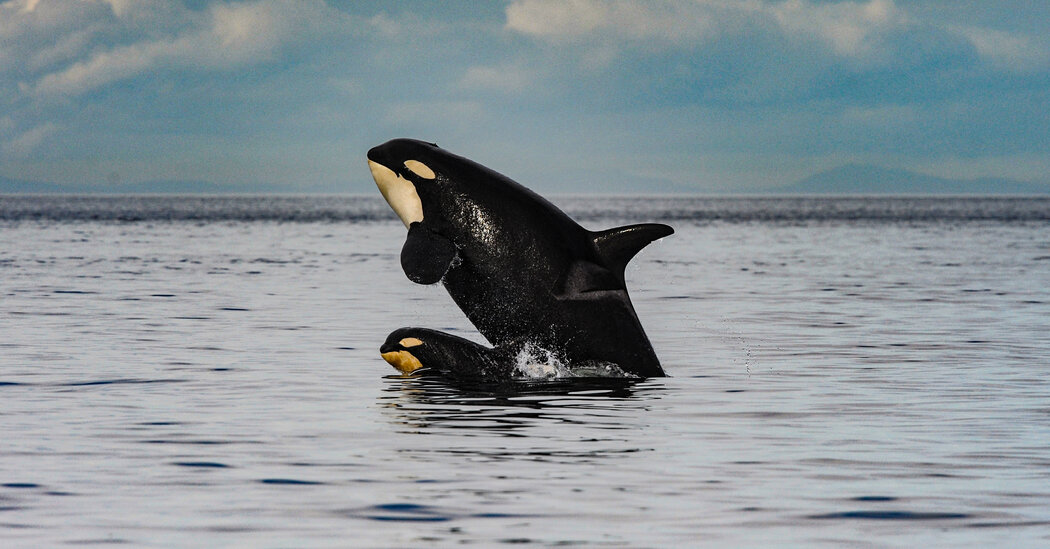The majestic and powerful orca is one of the most feared hunters on the planet, yet in some populations, these apex predators rely on their mothers to survive. A new study published in Current Biology shows that the prolonged feeding of adult sons by their mothers comes at a huge reproductive cost for the matriarchs.
The southern resident killer whales, which call the waters off the coast of British Columbia, Washington, and Oregon home, are facing a dwindling population due to a shortage of their main food source, Chinook salmon. The whales live in family pods and are led by matriarchs who can live up to 90 years. Females stop reproducing in midlife, making them one of only a few species of mammals – including humans – to undergo menopause.
Scientists have been looking for ways that the matriarchs can help the survival of their children and grandchildren, and a 2012 study showed that the presence of older moms helped adult offspring stay alive – especially sons. To learn what it costs mothers to feed their sons indefinitely, researchers looked at nearly four decades’ worth of census data on mothers of reproductive age and their families.
What they found was that mothers with a living son were about half as likely to reproduce each year, compared with mothers with a daughter or with no offspring. After a female dives to catch a salmon, she surfaces with the fish sideways in her mouth and her son may lurk over her shoulder. She’ll jerk her head and bite down hard, and half of the fish will float back behind her, to her waiting kid. This feeding continues throughout the son’s life, and is likely a major factor in keeping the males alive.
It is thought that this strategy evolved under conditions where the whales had more food available, and better-fed mothers may not have paid as high a price for sharing their meals. However, as the southern residents face a shortage of salmon, their dwindling population might be even more precarious because mothers sacrifice their own reproduction as they feed their sons.
This strategy is a new answer to a basic evolutionary question – when should a parent cut off their young? The answer in this case is never, as the mothers continue to feed their sons even after they reach adulthood. It is a testament to the strong bond between mother and son, but it also highlights the struggles that the southern resident killer whales are facing.
Source: www.nytimes.com
